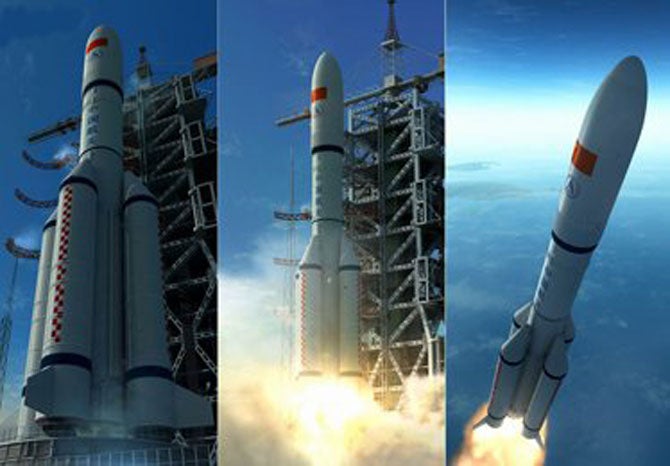China’s Long March 5 Space Rocket Stretches Its Legs
With environmentally friendly engines

On August 17th, China successfully test-fired the second stage of the Long March 5 space launch rocket. This was the last of pre- systems integration testing and thus a key milestone to ensure the LM-5’s timely maiden flight in 2016.

Full Burn
The second stage of the LM-5 is vital for Chinese high orbit satellites and extraterrestial missions, such as lunar exploration. While the basic LM-5 doesn’t have a second stage, the LM-5B will be able to use its second stage to place up to 14 tons into geosynchronous orbit (including military payloads like electronics and intelligence satellites), or to deliver a payload to the moon, like the Chang’e 5 lunar rover. The LM-5’s heavy low orbit and geosynchronous payload will firmly place China among the world’s leading space powers in terms of technology, as well as serving as a stepping stone to even more powerful rockets, like the 130-ton payload Long March 9.

Tiangong 3
And if its ability to sling cargo into outer space wasn’t enough, it’s also good for the planet it leaves behind. Chinese media was quick to point out that its liquid oxygen and hydrogen, 1,100 ton thrust engines are much more environmentally friendly than the current engines of in-service Long March rockets, such as the dinitrogen tetraoxide and unsymmetrical dimethylhydrazine powered YF-20 engine.
You may also be interested in:
China’s Space Station gets a ‘Super Eye’
China’s Largest-Ever Space Rocket Takes Another Big Step Forward
China Showcases Plan to Become the Leading Space Power
Next Generation of Chinese Space Launch Vehicle Begins Its Long March (by standing up)